Meredith Sue Willis's
Books for Readers # 161
May 2, 2013
It looks better online! -- Read latest changes and corrections online -- MSW Home
In this Issue:
Duff Brenna's Murdering the Mom; Swans and Klons; No Name
Reamy Jansen on Lady Audley's Secret
Phyllis Wilson Moore on The Black Unicorn
Joel Weinberger on A Confederacy of Dunces
The E-Reader Report with John Birch
The Debt of Tamar
Announcements
Free e-mail subscription to this newsletter.
To create a link to this newsletter, use this permanent link .
For Back Issues, click here.
Messages from the sponsor:
From Montemayor Press: a new edition of Blazing Pencils: Writing Stories and Essays. Read a Sample Chapter.
A Space Apart , first published by Charles Scribner's Sons is now available in a revised edition for all E-Book Formats from Foreverland Press with a new Afterword
for Kindle--for Nook--for All E-Reader formats
Duff Brenna's memoir Murdering the Mom at first felt to me a little like Charles Bukowski-lite: appalling brutality and ugliness and grim good humor about it all. But as I read, I became more andmore impressed with the fullness of the world of this family with too much drinking, too much smacking around, and too much abusive sex--especially the sister used by the stepfather. What Brenna does extremely well is to convey accumulative psychological damage over time. Only the best prose narrative can do this kind of painstaking, deliberate laying on of detail that captures the accretions of time, the slow changes of life.
I don't mean to suggest that the novel doesn't move. On the contrary, it goes fast; Brenna's storytelling has tremendous momentum, and as the narrator matures from child to teen, there is a wonderful demonstration of the many selves he develops. He becomes a car thief and worse, and for self protection, he practices little bits of casual sex that either are or aren't consensual. Sometimes the user and sometimes the used, he also reads widely and takes care of his little sister. From time to time there are small moments when some adult makes a serious effort to understand him and his sisters, including his mother when she isn't drinking and decides to focus on someone besides herself. Always, too, he has a solid relationship with those sisters. Along with the sex life and the crazy destructiveness, we see the narrator gradually growing a moral consciousness and the ability to begin to love.
I want to recommend in an entirely different mode Nora Olsen's new novel, Swans & Klons. This is young adult L.G.B.T. science fiction by the author of The End: How Five Queer Kids Save the World. The earlier novel was lots of fun, but tended to insert new characters and new settings to keep things moving. This time, we have a fully realized science fiction world where two energetic,hopeful young characters try to make political change and find adventure. In this world, all the men have died off--except for a few "cretinous males" in the Land of Barbarians. Everyone here is female, "born" in a Hatchery as clones of an original 300 or so chosen women. Technology is fantastic in some ways (viz. cloning) but most labor is done by hand-- by other clones who are not considered human.
The two main characters, "schatzies," (German for treasure and slang for girlfriends and I assume lovers, although there's nothing explicit) discover that the nonhuman clones are nonhuman only because the bosses say so. The exciting story line is about how the girls try to start a revolution and free the klons. What's neat about the book is that the girls are brave, resourceful, and smart– and not unsuccessful, but it also turns out that the Klons have been running away on their own with no help from members of the ruling class.
In the end, the girls go to the only other part of the world delineated in this book, where the so-called Barbarians live. The Barbarian women turn out to be rather nice, if a little on the crunchy side– they hatch their babies in their own uteruses and keep their hairy cretin-sons around and seem to be fond of them.
It's a high stakes but high spirited adventure, and I recommend it for yourself and the teens in your life: it holds together well, with just the right mix of realistic teenage love and a fascinating speculative world. And Olsen leaves an opening for more adventures!
For more in feisty female protagonists, try No Name by Wilkie Collins. This one of my cheap-to-free Victorians for the Kindle. Collins' other books I have read have been entertaining, but sometimes tooconvoluted for my taste. This one is certainly highly plotted and also melodramatic, but the main character makes suspension of disbelief well worthwhile.
The underlying situation is that English law of the time could deprive children of their father's legacy if he is not married to their mother, even if everyone thought they were married, and even if he wants the legacy to go to the children. This is what happens to two young women raised to be ladies; to their horror, they are, overnight, turned into illegitimate orphans with no money and a grasping uncle who intends them to have none of their father's legacy.
The situation itself-- that the parents were secretly unmarried-- was considered racy at the time, but more shocking is that the younger sister, Magdalen, a teen-aged dynamo, decides to seek revenge. She has enormous personal agency, earning money and generally running circles around the objects of her hate. She flees her friends and the impoverished safety they offer; she goes on stage for money; she arranges a partnership with a con man; and she eventually effects a mercenary marriage of revenge.
She also suffers from some of her actions. Laws are probably broken, as Magdalen disguises herself and spies on her enemies and obtains a proposal of marriage with complete underhandedness. She only breaks down in her wild careen of vengeance with poverty and illness. There is some officious narrative hand-wringing over her unwomanly behavior, and she is punished-- a little-- but quickly redeemed and given a good, devoted, solvent man who loves her and nurtures her back to health.
But what you remember is all her adventures, and you have to feel that Wilkie Collins is himself in love with her nostril-flaring passion and determination.
--Meredith Sue Willis
Short Reviews
I was really on a Wilkie Collins kick last month. After No Name, I was less fascinated by Fallen Leaves, one of his last novels. It was published in 1879 and did not do well commercially. He planned a Part II about an unconventional marriage, but never wrote it. The main character is a young man, a passionate Christian Socialist raised in an American utopian community. Quick to express indignation and maybe like Wilkie himself only handsome, he falls in love impetuously with a conventional girl who totally misunderstands him when he takes under his wing a girl-prostitute off the streets. He causes scandals in a dozen directions– the prostitute of course, but he also gives a scandalous lecture on Socialism. The novel has unconventional women, including one strong individual with a tragic self-inflicted end. It's sentimental and melodramatic, but also anti-capitalist and proto-feminist.
Next I read a short biography of Wilkie (everyone called him by his first name): Wilkie Collins by Peter Ackroyd. This gave me some of what I wanted, namely which other of his books I might enjoy, but it wasnt a really satisfying biography for me. Ackroyd is the biographer of Dickens, and a novelist himself, and I had the feeling he condescended to Wilkie with his sensation novels and coincidenes, especially in comparison to Dickens. The biography never really approaches his unusually empathetic attitude toward strong women and the plight of women– and how at the same time, he kept two families and never married either woman.
Once I Was Told the Air Was Not For Breathing is a small book of poetry by Paola Corso. Divided into "Men's Work" and "Women's Work,"it sets as its subject Italian immigrants, although many other groups and individuals are included. One poem is addressed by the Italian and Jewish victims of the Shirtwaist Triangle Factory fire "to the Chinese girls, the Indonesian girls,/ the Vietnamese, the Taiwanese/ girls girls" of today. The most brutal poems come out of the 1911 Shirtwaist Triangle Factory fire--and seem fearfully relevant as I write this a few days after the collapse of the Rana Plaza factory in Bangladesh.
Corso has poems about the coke ovens of Pittsburgh and environs where Corso's own family lived and worked. Most of the poems are built of words from documents of public hearings and news reports as well as memoirs and academic studies. Meticulously footnoted, the book has a wonderful quality of poetry blooming out of a great ocean of information and lost voices, past and present.
The Debt of Tamar by Nicole Dweck is a love story that begins in the 16th century in the time of the Inquisition, less than a hundred years after Christopher Columbus's voyages, among rich, secret Jews. It moves on to Istanbul and the Ottoman Empire, and ends in contemporary times among the wealthy jet set.
At heart, the story is a romance that crosses religious and national barriers– and centuries of time! The people who are tied in this way are from a wealthy Jewish family, the Nissims, and the imperial Osmans, including Selim Osman, a playboy with a good heart and a terrible disease. The love story is moving, but perhaps the understated theme of Jews and Muslims intertwined in their commonalities is what really powers this surprising debut novel.
How It All Began by Penelope Lively leaves me not quite knowing how I feel: I read it with alacrity, if not quite the passion with which I gobbled , Hunger Games or George R.R. Martin. It takes place in contemporary London among rather repressed and literate people for whom a love affair is major excitement and not having an affair seems morally admirable. Somehow, it all felt light to me. And if so, is that a bad thing?
Finally, I read Autobiography of My Mother by Jamaica Kincaid. This novel is beautiful and impressive with its powerful repetitions ("my mother died at the moment of my birth" "I can't love anyone" and its mix of splendid language and anger. A short book, it has a richly sensual yet oddly ascetic view of life. The narrator, a black woman, ends up living with the enemy by marrying a pathetic white colonial man. He is weak and clueless; she is vital and barren, except for her imagination and language that burgeon with imagery.
THE BLACK UNICORN is a rollicking fantasy/coming-of-age novel told with subtle, sometimes wry, humor. Readers experience a kingdom described in intricate detail and populated by unique imagined characters. A place inhabited by unicorns, gypsies, priests, villains, and more strange animals than Hogwarts.
Phyllis Wilson Moore on THE BLACK UNICORN by George the Good
The protagonist, young Blackie, is not a cautious teen. Ignoring the advice of his rather sedate elderly father, he sneaks off from his forest home determined to see the world and test his mettle. He soon runs afoul of meat-eating peasants and villages who chase him from their luscious gardens. Worse, he can't recall how to get back home.
But the world is not all bleak. Blackie meets a beautiful princess and her bumbling Prince George, both in need of a hero. George enlists Blackie's help saving the princess from a marriage to the treacherous and nasty Prince Vile. The unlikely duo sets out for the kingdom of Vile.
Their journey leads them to villages full of mistreated peasants, herb women, dangerous animals, a band of conniving gypsies, and smelly flying creatures spewing fire. Just when Blackie is getting the hang of fighting, his baby horn falls off. Meanwhile Prince George keeps losing his swords and shields. But on they go to Vile.
Harry Potter fans will enjoy the colorful details of life in this era. The fight scenes with hellions and dragons are graphic enough for any adventure movie and the villagers and priests are especially well drawn. The author has a great sense of humor and an incredible knowledge of unicorn lore, mythology, and the days of dragons.
Here in West Virginia folks know the author as Dr. George Byers, an esteemed teacher of Shakespeare and children's literature, now retired from Fairmont State University. His former students can attest to his skills as a teacher and to his wonderful wacky sense of humor. I am fortunate to beone of them.
Also read Phyllis Moore's review in The Charleston Gazette of Fed from the Blade:
THE E-READER REPORT WITH JOHN BIRCH:What E-Book Is Everyone Reading Right Now?
The New York Sunday Times publishes each week's list of bestsellers, broken down into fiction, non-fiction and Self Help/'how-to' hard cover books, paperbacks, trade paperbacks, and e-books. Here are the top five fiction and non-fiction e-books listed in the Times on April 7.
Fiction
1. Love At Last, by J.R.Ward. (Penguin Group)
2. The Host, by Stephanie Meyer. (Little, Brown)
3. The Wanderer, by Robin Carr. (Harlequin)
4. Six Years, by Harlan Coben. (Penguin Group)
5. Falling Into You, by Jasinda Wilder. (self)Nonfiction
1. Lean In, by Sheryl Sandberg with Nell Scovell. (Knopf)
2. Proof Of Heaven, by Eben Alexander (Simon & Schuster)
3. Salt Sugar Fat, by Michael Moss. (Random House)
4. Killing Kennedy, by Bill O'Reilly, with Martin Dugard. (Henry Dugard)
5. Bossypants, by Tina Fey. (Little, Brown)Is the wine trade trying to pull the wool over our eyes? Maybe. Read John's latest post, "Weird Words About Wine" on his blog: www.JohnBirchLive.blogspot.com -- a growing collection of nearly 30 of his short stories, articles and essays
Reamy Jansen on Lady Audley's Secret
Of the Victorian Novels mentioned in these pages, another volume, my candidate for admission, Lady Audley's Secret (Oxford World Classics),is the product of the prolific Mary Elizabeth Braddon, whose eighty-fifth novel was published one year after her death in 1815. Lady Audley, like Wilkie Collins's The Woman in White, was of a genre known to its readers as "sensation novels:" tales of reversals and betrayals, ones that also pressed themselves up against the borders of eroticism and occult taboos.
Their villains, such as Count Fosco in The Woman and Lady Audley, are an admixture of charm, threat, and ruthlessness. Invariably, this sort of work played off against nineteenth-century anxieties over illegal and secret confinement. Someone, mostly women, is always being locked up against her will, as happens to Monica in The Woman in White, who is rescued by her drawing master/hero. A different fate awaits the murderer, Lady Audley, who initially poses as humble and efficient housekeeper, but is utterly satanic in fulfillingher designs on Audley manor.
Her foil turns out to be an unassuming, but dogged member, of the Audley family (like many of these heroes, he has little sense of vocation: Walter Hartright in Woman is an artist manqué, and "Robert Audley was supposed to be a barrister," says the narrator. Each hero also becomes more "manly" by the books' conclusions. And Robert is iron willed when it comes to determinng a terrible fate for Lady Audley, life imprisonment in a maison de santé , a living death in well-appointed madhouse in the French Countryside, an end that strikes terror into Lady A and no doubt will have a similar effect on Braddon's female readers (see note) "If you were to dig a grave in the nearest churchyard and bury her alive in it", says Robert, "you could not more safely shut her from the world and all worldly associations."
This volume is a thrilling ride that even Wilkie Collins would envy.
NB: Braddon herself was not unfamiliar with asylums; her long-time lover, John Maxwell, had a wife who was in an Irish sanitorium. When his wife died 1874 the couple married and had six children. ---
JOEL WEINBERGER on A Confederacy of Dunces by John Kennedy Toole
An absolute comic masterpiece. There are many books that I find humorous and funny, even to a grand degree (Hitchhikers Guide comes to mind), but there are few that cause me to laugh and guffaw aloud as much as I did with this book.
While the plot is a mindless set of coincidences, the book's complete gravitational center is the main character, Ignatious Reilly. A bombastic, flatulent, overweight wordsmith, Reilly is an absolutely brilliant creation. He's a man completely out of his time, belonging in a different world, finding virtually everything in the modern world offensive, yet he manages to offend everyone around him at the same time.
It's hard to describe the comic brilliance of the character of Reilly, but it really comes down to Toole's brilliant use of the English language. Reilly has a unique voice in English literature, as far as I've read, using modern English as we know it, but coming across as an ancient man of letters. The only other character in literature that I can compare him to is Falstaff, but even he was man of his own time. The brilliance of Reilly is he's simultaneously both ancient yet modern, something not even Falstaff achieved.
I found Reilly's speech so fantastic that, for several weeks after reading "Confederacy," I found myself quite accidentally trying to mimic Reilly's patterns and speech in my own daily conversation. Odd, to say the least, especially given the comic nature of the character.
It has been a while since I've so thoroughly enjoyed and been engrossed in such a book. It's such a shame that Toole's life was cut so short and English literature was robbed of such a powerful voice.
Readers Respond
Donna Meredith wrote: " Love the concept of Politerature! A writing book a professor recommended to my fiction workshop, Carol Bly's The Passionate, Accurate Story, encourages this type of writing."
Politerature is a new website from me and Shelley Ettinger that begins with the assertion that politically informed literature can be of the highest quality:
ANNOUNCEMENTS, NEWS, CONTESTS, WORKSHOPS, READINGS ETC.
Latest from Foreverland Press: a pair of linked novels by Kathryn Dow in fascicle form: "Until We Meet Again" and "The Minor Apocalypse of Alma Bell." Free downloads!
Split This Rock, the national network of socially engaged poets has a poem of the week: http://blogthisrock.blogspot.com/search/label/Poem%20of%20the%20Week
The Center for Fiction in New York City (formerly the Mercantile Library) is a place for events and meetings and even has its own independent bookstore!
For people looking for a space to rent for writing, take a look at an interesting shared space called Paragraph. It's on 14th Street, and they have readings and more, along with renting the spaces. "Paragraph is a membership organization dedicated to providing an affordable and tranquil working environment for writers of all genres. We are open 24 hours a day, 7 days a week, 365 days a year."
Laura Treacy Bentley's novel THE SILVER TATTOO has just been released in print and as an ebook. It is a dark literary thriller set in mythical Ireland.
On Barcelona is inviting submissions: "Looking, as always, for work. No reading fees, no contest fees, no SASEs, no guidelines." Email halvard@gmail.com
An email digest of magazines and publishers open to submissions: write CRWROPPS-B@yahoogroups.com to join the list.
Leora Skolkin-Smith's (http://www.leoraskolkinsmith.com/) essay on Clarice Lispector "Words Are Living Tissue" published at the Quarterly Review is going to taught at Bard College for a course called: "The Antiheroine: Writing the Female Rebel." Lispector was a feminist of the 1960's and 70's who has been been virtually erased by our current literary scene.
The Seven Hills Literary and Penumbra Poetry and Haiku contests are now accepting online manuscript submissions. Aug. 30 is the upload deadline. The contests, sponsored by the Tallahassee Writers Association, are in their 19th and 27th years, respectively, and are open to all. Short stories, creative nonfiction, flash fiction, and children's picture books (text only) are the categories for prose competition. Winners in prose and poetry receive $100 for first place; $75, second; and $50, third. Haiku winners receive $50, $35, and $20. Winning entries will be published in the 2014 Seven Hills Review. See the Tallahassee Writers Association website (www.twaonline.org) for complete contest guidelines, rules and entry fees. TWA members receive a discounted fee for entries, but all judging is blind.
ABOUT AMAZON.COM
The largest unionized bookstore in America has a webstore at Powells Books. Some people prefer shopping online there to shopping at Amazon.com. An alternative way to reach Powell's site and support the union is via http://www.powellsunion.com. Prices are the same but 10% of your purchase will go to support the union benefit fund.
For a discussion of Amazon and organized labor and small presses, see the comments of Jonathan Greene and others in Issues #97 and #98 .
WHERE TO FIND BOOKS MENTIONED IN THIS NEWSLETTER
If a book discussed in this newsletter has no source mentioned, don’t forget that you may be able to borrow it from your public library as either a hard copy or a digital copy. You may also buy or order from your local independent bookstore. To buy books online, I often go first to Bookfinder or Alibris. Bookfinder tells you the book price WITH shipping and handling, so you can compare what you’re really going to have to pay.
A lot of people whose political instincts I respect prefer the unionized bricks-and-mortar bookstore Powells (see "About Amazon.com" above) that sells online at http://powellsbooks.com.
Another source for used and out-of-print books is All Book Stores. Also consider Paperback Book Swap, a low cost (postage only) way to get rid of your old books and get new ones by trading with other readers.
If you are using an electronic reader like Kindle, Nook, or Kobo, don't forget free books at the Gutenberg Project—mostly classics, but other things as well. And libraries now lend e-books too!RESPONSES TO THIS NEWSLETTER
Please send responses to this newsletter and suggestions directly to Meredith Sue Willis . Unless you instruct otherwise, your responses may be edited for length and published in this newsletter.
BACK ISSUES click here.
LICENSE
Books for Readers Newsletter by Meredith Sue Willis is licensed under a Creative Commons Attribution-NoDerivs 3.0 Unported License. Permissions beyond the scope of this license may be available at http://www.meredithsuewillis.com. Some individual contributors may have other licenses.
To subscribe and unsubscribe, use the form below.
"I hereby release my Goodreads review under a Creative Commons 3.0 Attribution License." -- Joel Weinberger
MSW Home



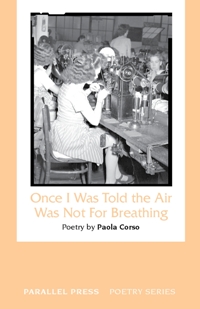
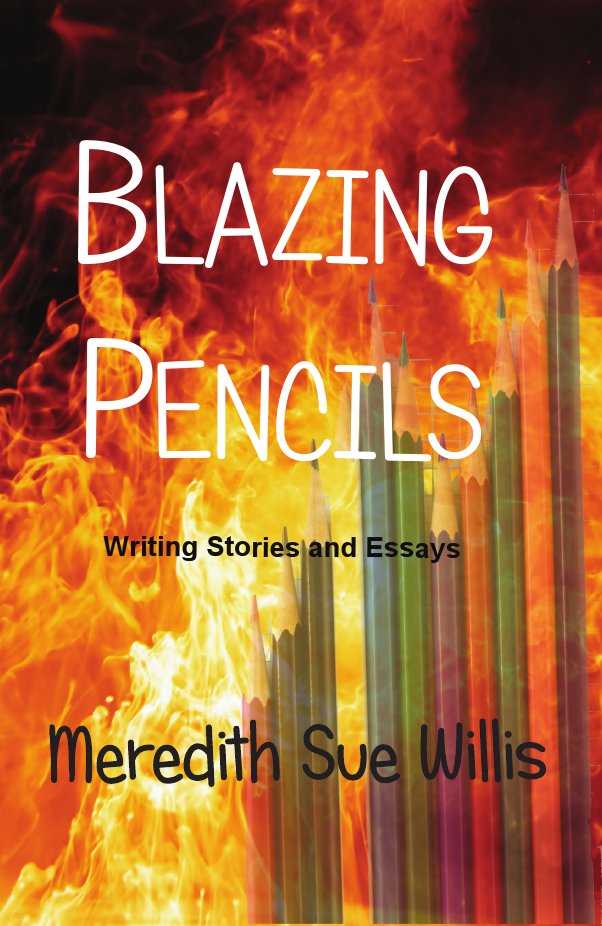
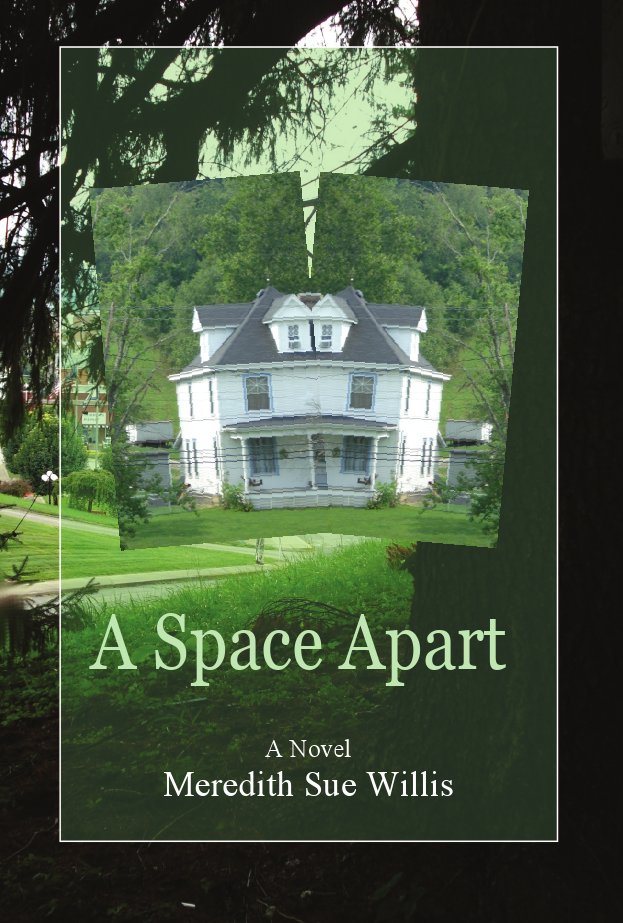
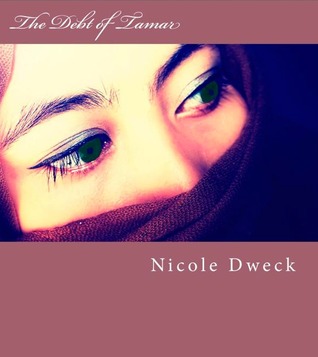

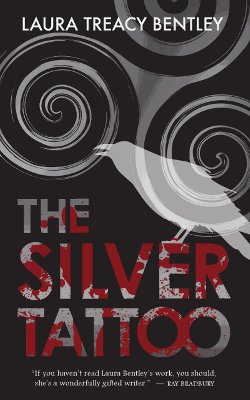
No comments:
Post a Comment